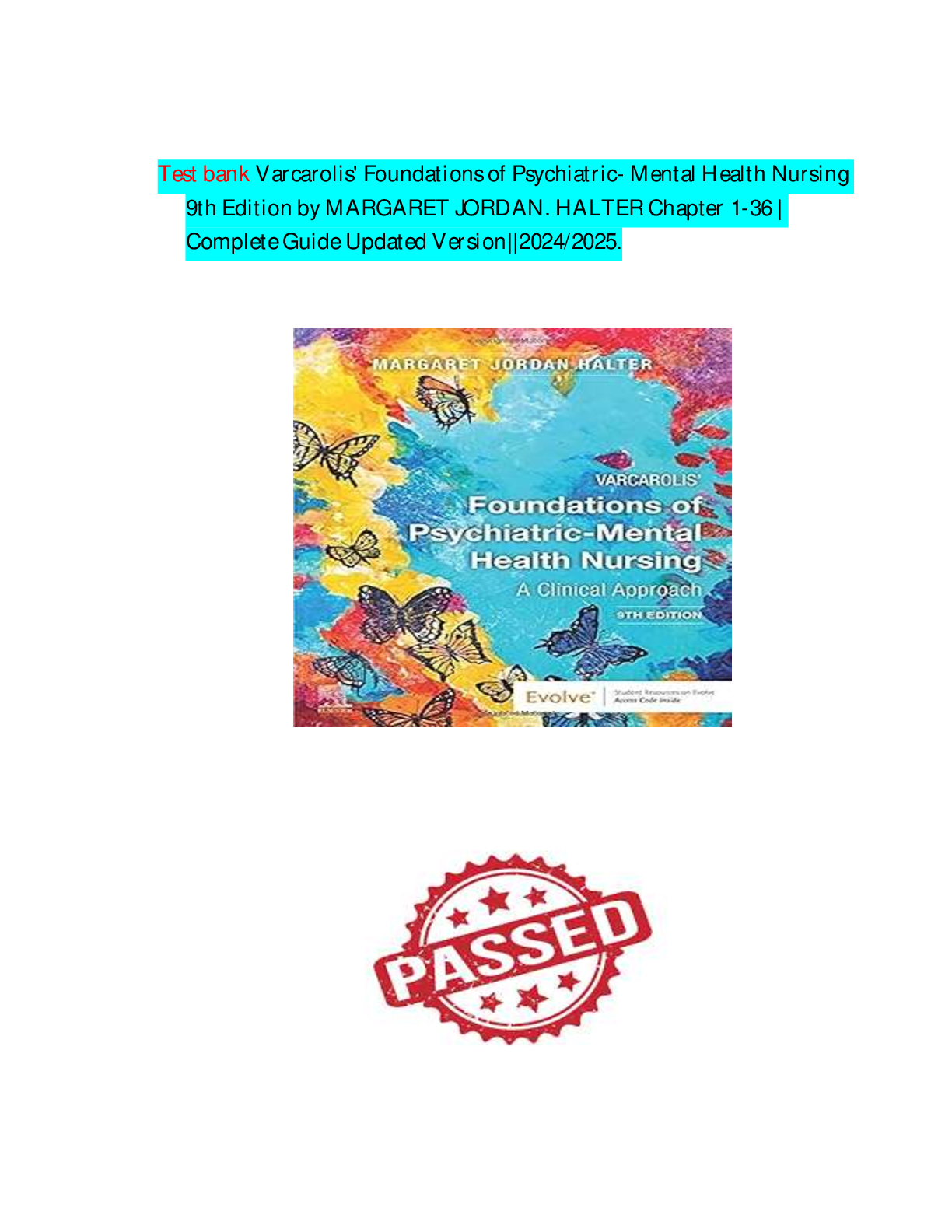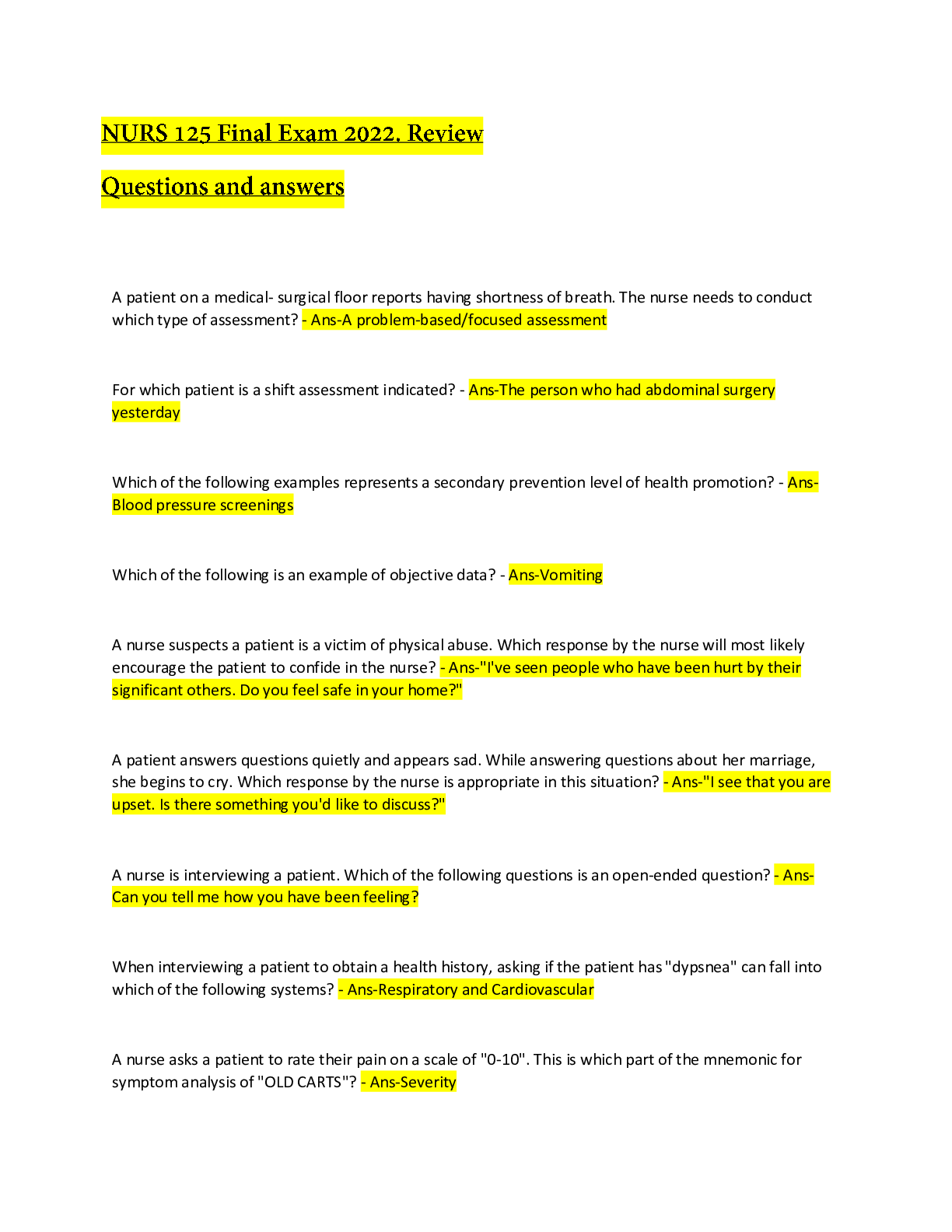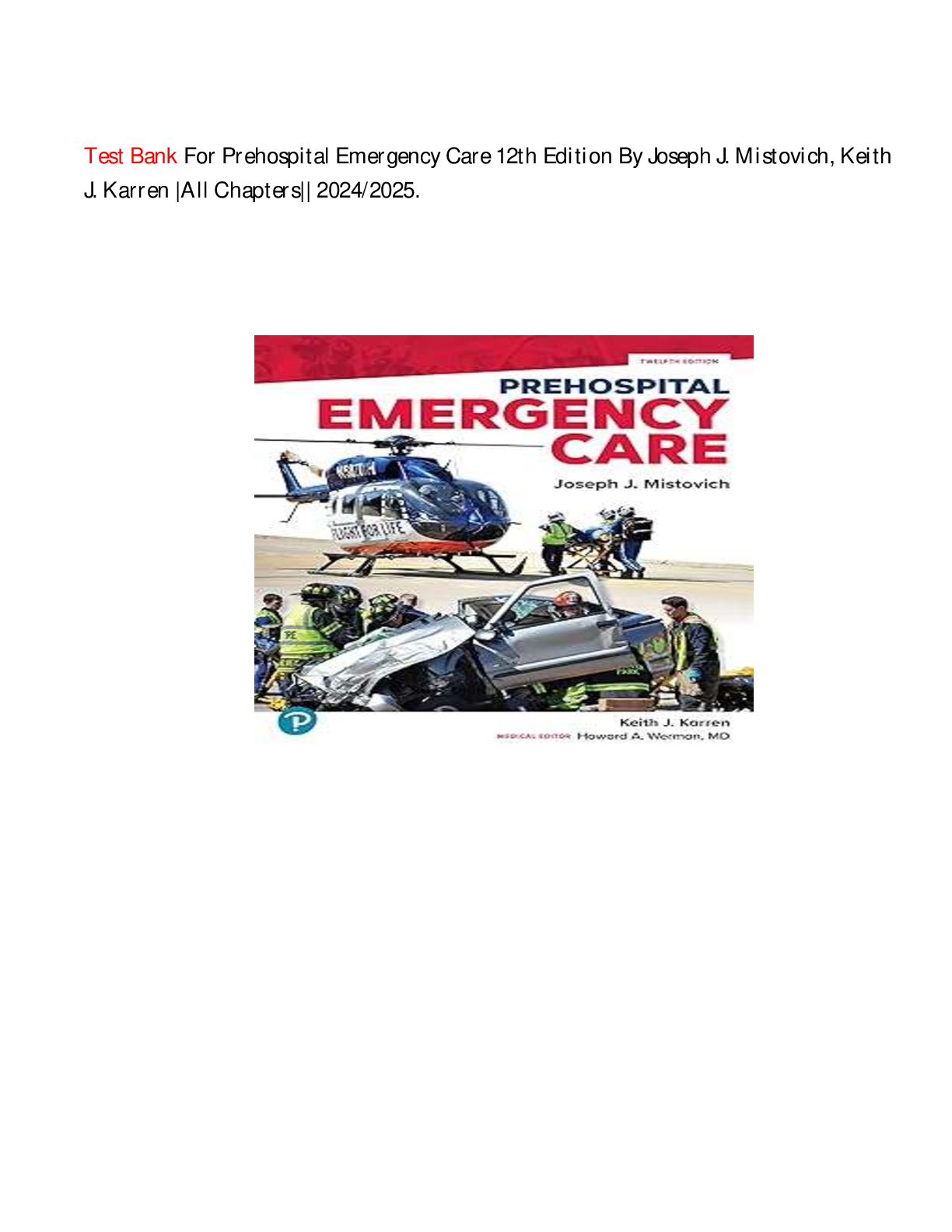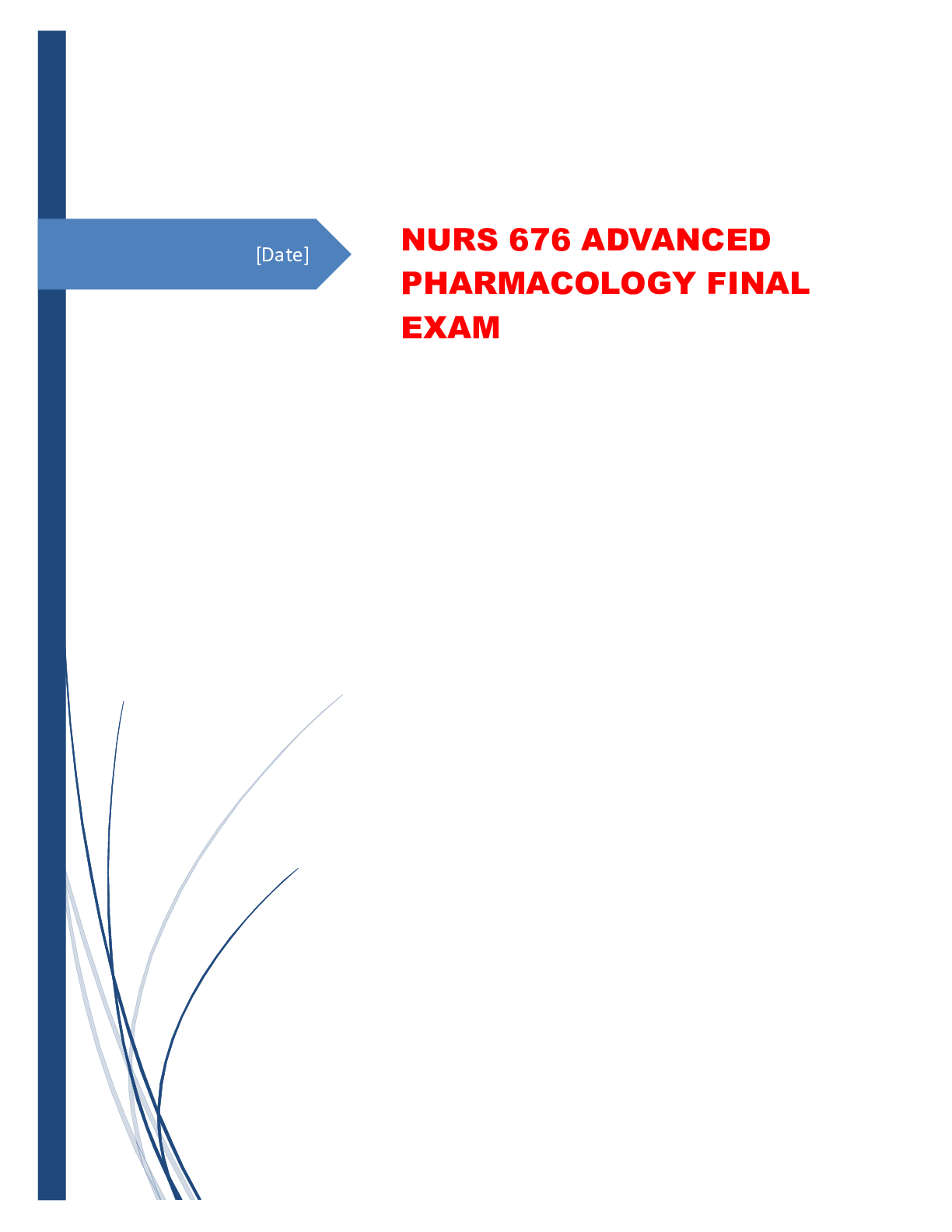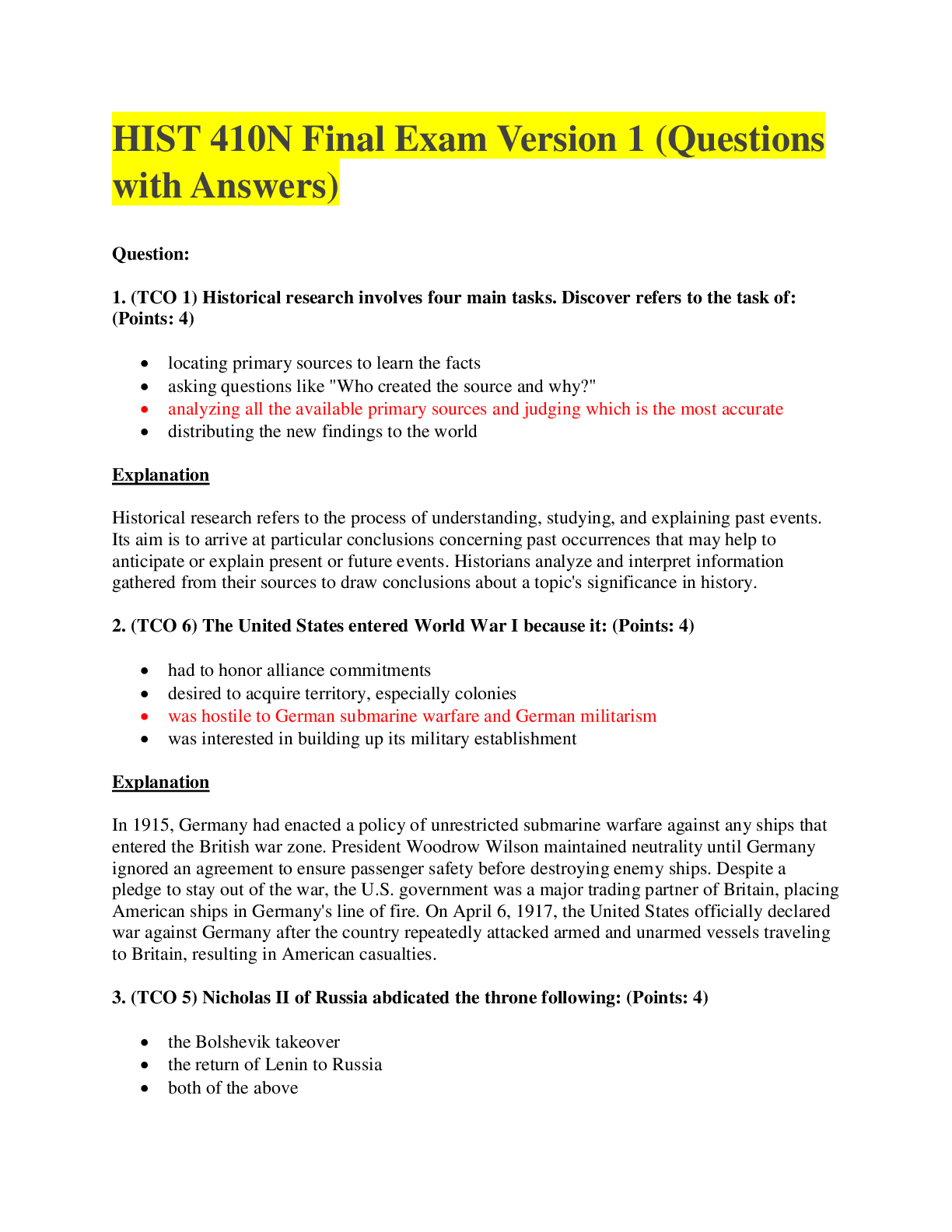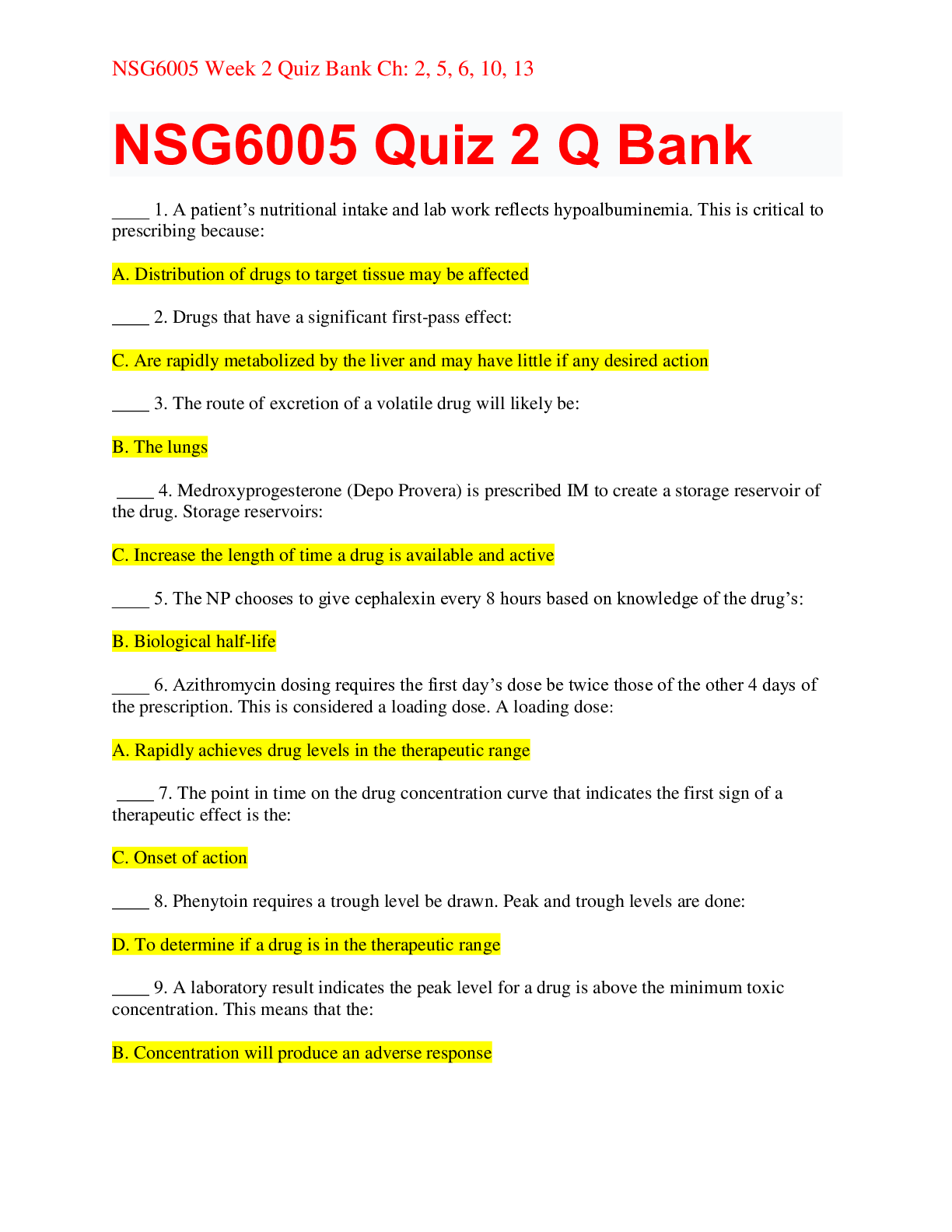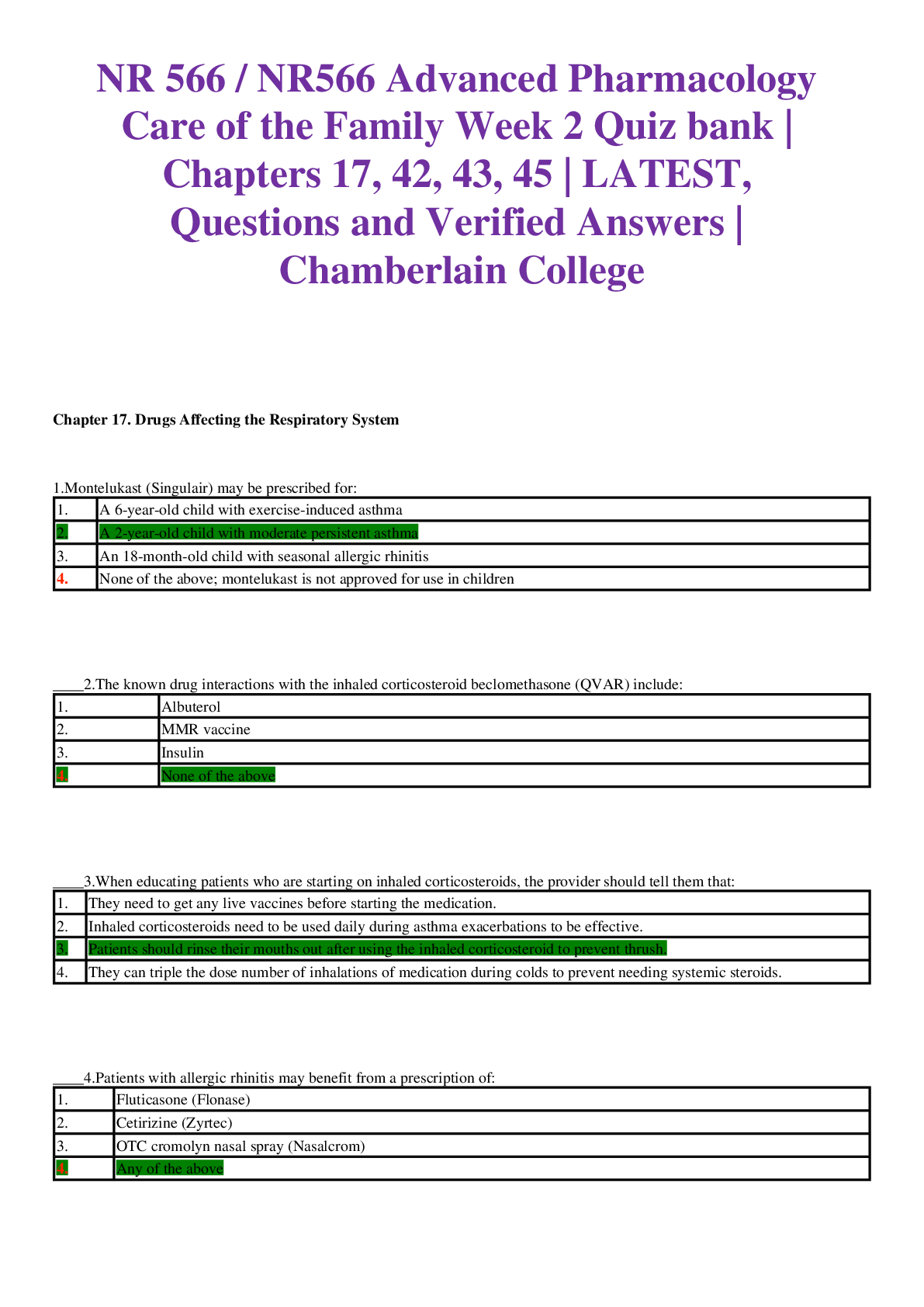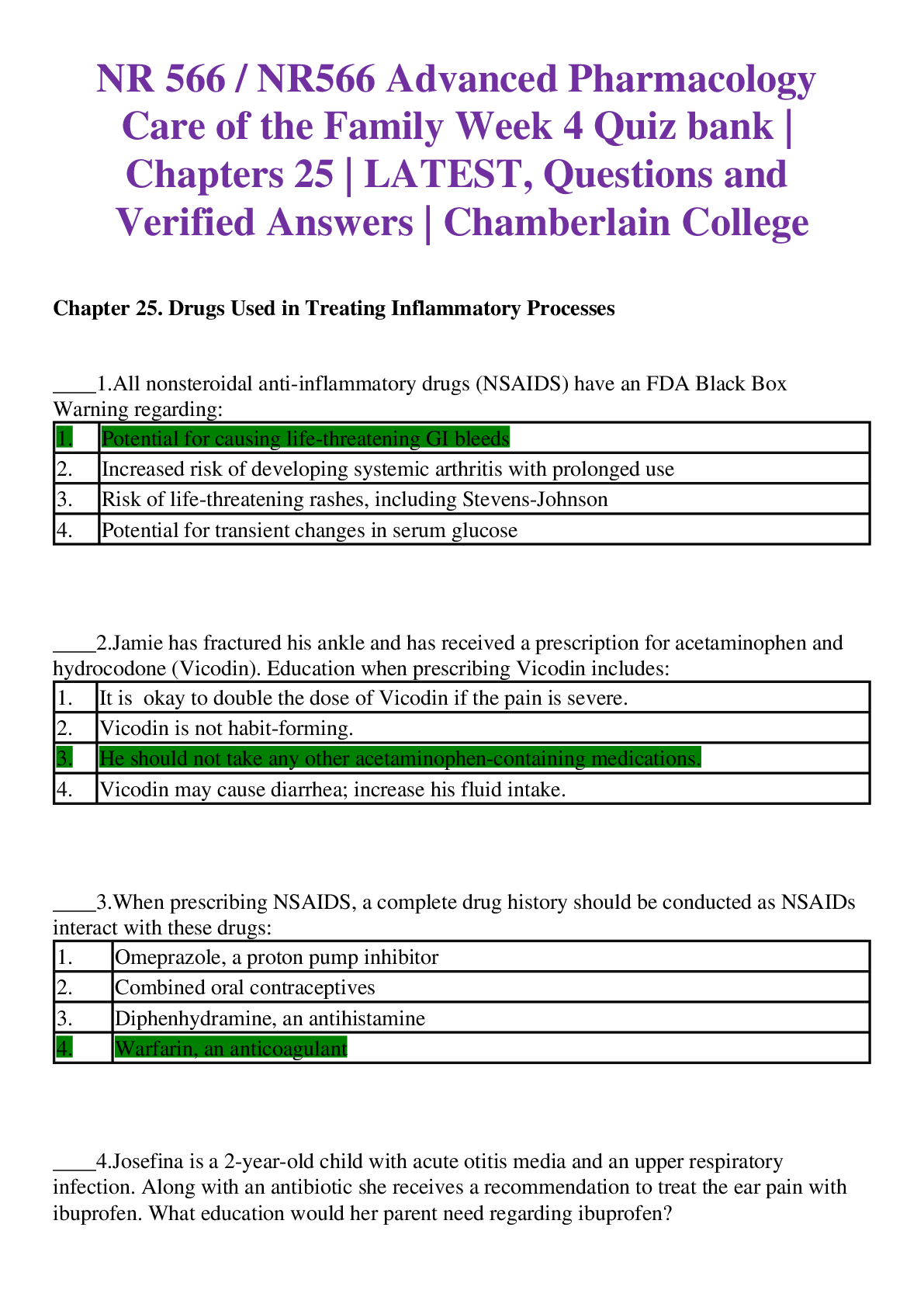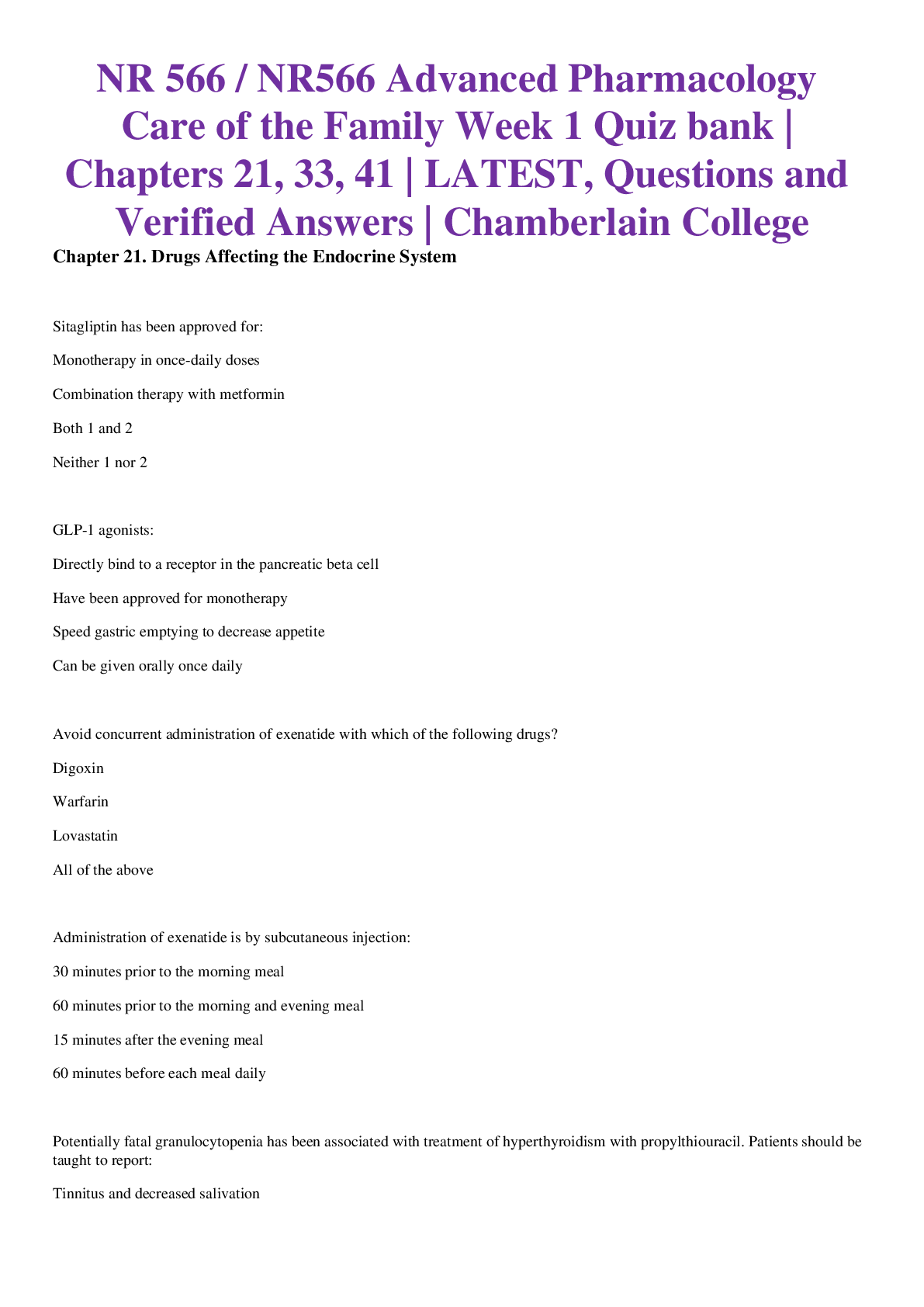*NURSING > EXAM > WGU D115 MASTER SET-ADVANCED PATHOPHYSIOLOGY FOR THE ADVANCED PRACTICE NURSE EXAM QUESTIONS AND VERI (All)
WGU D115 MASTER SET-ADVANCED PATHOPHYSIOLOGY FOR THE ADVANCED PRACTICE NURSE EXAM QUESTIONS AND VERIFIED ANSWERS (2024/2025) COMPLETE A+ SOLUTION.
Document Content and Description Below
Which type of genetic disease affects males more frequently than females? - Correct Answer-Sex-Linked recessive. Since males only have one X and one Y, if the affected chromosome has the illness, it w... ill be expressed. In which two conditions are chromosomal abnormalities the leading known cause? - Correct Answer-Intellectual disability and fetal miscarriage. Chromosome abnormalities are the leading known cause of intellectual disability and fetal miscarriage. What are three examples of prenatal diagnostic studies? - Correct Answer-Chorionic villus sampling (CVS), amniocentesis, and preimplantation genetic testing (PGT) are examples of prenatal diagnostic studies and are performed in vitro. CVS is a form of genetic testing that provides genetic information found in utero and is usually performed between weeks 11 and 14 of pregnancy. An amniocentesis is a form of genetic testing that evaluates amniotic fluid and is usually performed during the second trimester, between weeks 15 and 20 of pregnancy. PGT is performed on the embryo prior to implantation. Which genetic disorder is characterized by the presence of a zygote having one chromosome with a normal complement of genes and one chromosome with a missing gene? - Correct Answer-Cri du chat syndrome (translated as "cry of the cat") is caused by a DNA deletion. This term describes the cry often heard from a baby affected by the syndrome. Cri du chat syndrome can present as a microcephalic, low birth-weight baby with a piercing cry. How can an X-linked recessive disease skip generations? - Correct Answer-The disease can be transmitted through female carriers. Since females have two copies of the X chromosome, the mother may provide an unaffected X to a daughter or son. Furthermore, a daughter may not show signs of the disease because she has the other X (the only X the father can give to a female) to cancel it out. Which type of risk is referred to as the ratio of the disease rate among the entire population to the disease rate in an unexposed population? - Correct Answer-Relative risk is a ratio of probability, not an actual occurrence of disease. What are the empirical risks for most multifactorial diseases based on? - Correct Answer-Many factors from lifestyle to genetics affect multifactorial diseases. [Show More]
Last updated: 1 month ago
Preview 1 out of 45 pages

Loading document previews ...
Buy this document to get the full access instantly
Instant Download Access after purchase
Buy NowInstant download
We Accept:

Reviews( 0 )
$13.00
Can't find what you want? Try our AI powered Search
Document information
Connected school, study & course
About the document
Uploaded On
Apr 21, 2025
Number of pages
45
Written in
Additional information
This document has been written for:
Uploaded
Apr 21, 2025
Downloads
0
Views
7





